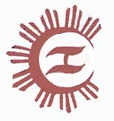|
|
|
 |
DON'T MEMORIZEALL THOSE DATES!By Ed Aurelio C. ReyesKamalaysayan Writers and Speakers(September 1996) |
|
![]() (This page has a CYBER TALK-BACK instant feedback box at the bottom.)
(This page has a CYBER TALK-BACK instant feedback box at the bottom.)
![]()
![]() ATES,
DATES, and more dates. This is not about what an otherwise lonely
bachelor would have or try to have to overcome his loneliness. Neither is this
about oversized raisins. I'm talking about DATES IN OUR HISTORY, the kind of
dates my teachers made me memorize (and made me hate history as a subject), the
same kind of dates some civic-oriented media projects try to remind us about.
ATES,
DATES, and more dates. This is not about what an otherwise lonely
bachelor would have or try to have to overcome his loneliness. Neither is this
about oversized raisins. I'm talking about DATES IN OUR HISTORY, the kind of
dates my teachers made me memorize (and made me hate history as a subject), the
same kind of dates some civic-oriented media projects try to remind us about.
When it comes to "Dates in Our History," the first one that many people remember is March 16, 1521. After all, we were all made to memorize that date as that of Magellan's discovery of the Philippines. So wide has been the familiarity, the degree of mass memorization, that a popular comedian singer, Yoyoy Villame, started one of his songs precisely with what supposedly happened on that date. So wide and deeply-entrenched has been its mass memorization that many would raise their eyebrows way past their foreheads whenever I say we were memorizing the wrong date all along.
Yes, the history books have quietly been corrected in more recent decades. They now say March 17. Pigafetta, Magellan's chronicler, failed to account for what has become a science-based international convention of adding or subtracting one day whenever one crosses the Pacific Ocean, depending on direction. (Pearl Harbor was bombed on December 7, 1941, Pearl Harbor date; it was already December 8 here but what the heck, it didn't happen here. Magellan's discovery happened here so the date is March 17. Get it?).
But what's the big deal, really? Save for some degree of embarrassment that we were almost swearing by that date as gospel truth, it really didn't matter much if it was the 16th or the 17th. The event and its consequence was the same even if we were all to agree, arbitrarily of course, that it happened on February 44, 1521.
KAMALAYSAYAN (Kampanya para sa Kamalayan sa Kasaysayan) believes that
A DATE IN HISTORY CAN BE SHOWN TO BE OF ANY SIGNIFICANCE ONLY IF IT IS RELATED TO ANOTHER DATE. Interrelating two dates shows their chronological order and the time lapse between them. Only in the order or the time lapse or both can we find any significance -- understanding, profound lessons and inspiration -- in those dates. Part of what was exciting about the founding of Rizal's La Liga Filipina and Bonifacio's Katipunan, with widely disparate aims, is that they both happened within only five days in mid-1892!Take March 16 or 17, 1521. What is significant about that? We know that within a few weeks from that date, Lapu-Lapu and his forces annihilated those of Magellan, and even killed this conquistador, in a battle in Mactan. After being routed, the Spanish expedition, or what was left of it, packed its bags and fled homeward. It was still 1521 then. Let me relate that date (1521) now to the time Miguel Lopez de Legazpi was able to finally establish Spanish colonial rule in our archipelago. Subtraction tells us that our Victory at Mactan postponed by 44 years, roughly half a century, the Spanish colonization of our history.
March 16, 1521 is not even a date in OUR history. On that date, Magellan was about to "discover the Philippines," but even he didn't know that-- it was to happen the following day. Our ancestors couldn't care less. And even when he came and he saw and he tried to conquer, the heroes of Mactan foiled his attempt. And set back Spanish intrusion and domination over us by about half a century.
What did happen on March 16, 1521 in OUR history was what our acestors were doing all over the archipelago on that date and in the decades that came before and the decades that followed. What kind of civilization was flourishing here before the Spaniards destroyed our culture and historical records? We practically don't know. How much do we know about OUR history beyond memorization of unrelated dates? Beyond when, where and who and what, do we also ask how and why?
(Kamalaysayan Media Service)
![]()
|
|
|
..
|
![]()
![]()
![]() back to the website opening window
back to the columns opening window
back to the website opening window
back to the columns opening window![]()